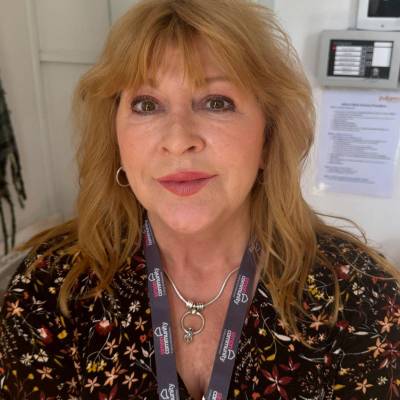
At 15, I left school and stepped into the world of work, my hands carefully stitching handbags in a Lancashire factory. For six years, I shaped and tailored, but I knew my path lay elsewhere. By 21, I had found my calling in social services, caring for elderly individuals living with dementia. What began as a stepping stone towards psychiatric nursing became a deep commitment—one that kept me in social services for many years.
Life took me on many different paths. I started a family, returned to work in care and support roles, and helped individuals with learning difficulties, mental health struggles, and physical disabilities. I supervised a unit for adults with severe learning difficulties, built an Age and Disability department for a major telecommunications company, and even ran my own business for ten years. But something was missing. I wanted to do more.
Homelessness has been on my mind since childhood. At 12, I would sneak out with jam sandwiches for the three elderly war veterans living on Manchester’s streets, I was always so touched by their politeness and resilience. At 16, I saw the scale of homelessness in London and couldn’t understand how anyone in our society could be without a home. By the age of 29 I was then aware of hidden homelessness and the reasons behind it, as I experienced it for myself after a marital breakdown.
Then, at 42, I read about Simon Community. Their mission resonated deeply with me, and I knew I had to be part of it. I became a support worker, spent three fulfilling years with the organisation, and when the time was right, I returned in 2017. Of all my working roles throughout my 48 years of employment, support work within Simon Community has been my most rewarding role.
Every morning, as I drive to work, I remind myself that today will be different from yesterday. Just as each client’s journey is unique, so too is each day in this role. Moving into our temporary accommodation can be overwhelming for people, and my job is to make that transition as smooth and positive as possible.
From the moment they arrive, we are there—welcoming them, building trust, listening. Some come with hope, others with nothing but exhaustion and fear. Each step of the way, I guide them through paperwork, assessments, and support plans tailored to their needs. One day, I might be on the phone advocating for a client’s medical care, the next helping someone navigate their benefits or secure a long-awaited housing placement.
The role is more than just practical support. It is about being a steady presence, offering kindness, patience, and encouragement, even when someone feels lost. It is about reminding people—some for the first time in years—that they matter.
The most rewarding moments are the ones where I see trust being built. It takes courage for someone to let down their walls and accept help, but when they do, even the smallest steps forward feel monumental. Seeing a client move into their own home with a newfound sense of confidence and self-worth is the greatest reward.
But there are challenges too. Some clients arrive burdened with self-hatred, convinced they are beyond help. Watching someone sabotage their own progress is heartbreaking. Yet, I hold onto hope. With time, a supportive team, and the right interventions, transformation is possible. I have seen it happen. And that’s what keeps me going.
Life has not always been easy for me, and for years, I questioned why I had to endure difficult times. But eventually, I came to see those experiences as gifts—lessons that gave me a deeper understanding of others. My past allows me to connect with clients in a way that only lived experience can. I know what it means to struggle, but I also know that there is always light at the end of the tunnel, no matter how dark it seems.
Outside of Simon Community, I find joy in music—the kind that spans from opera to heavy metal, from the dance bands of the forties to Tibetan throat singing. I lose myself in arts, crafts, and upcycling projects, always looking for ways to create something new from something old. I read, I watch documentaries, and I meditate, grounding myself so that I can give my best to those who need it most.
I don’t think of pride in terms of personal achievement—I find pride in others. In the clients who rebuild their lives, in the colleagues who grow in their roles, in the small victories that happen every day within our service. But if there is one moment that stands out, it is my involvement in the transition of Saintfield Road into Simon Community’s first female-only hostel. Being part of this transformation is something I will always hold close to my heart.
If you are considering this path, know this—it is not always easy. Some days, you will be stretched thin, trying to help multiple people at once. You will have to think on your feet, prioritise, and rely on your team. But above all, you must show up.
Support work is about more than just helping—it’s about listening, truly listening. It’s about working together, dropping egos, and committing to a common goal. When a team is strong, the people we support feel safe. And when people feel safe, they can begin to heal. That’s when the real magic happens. That’s when lives change. And that’s why we do what we do.